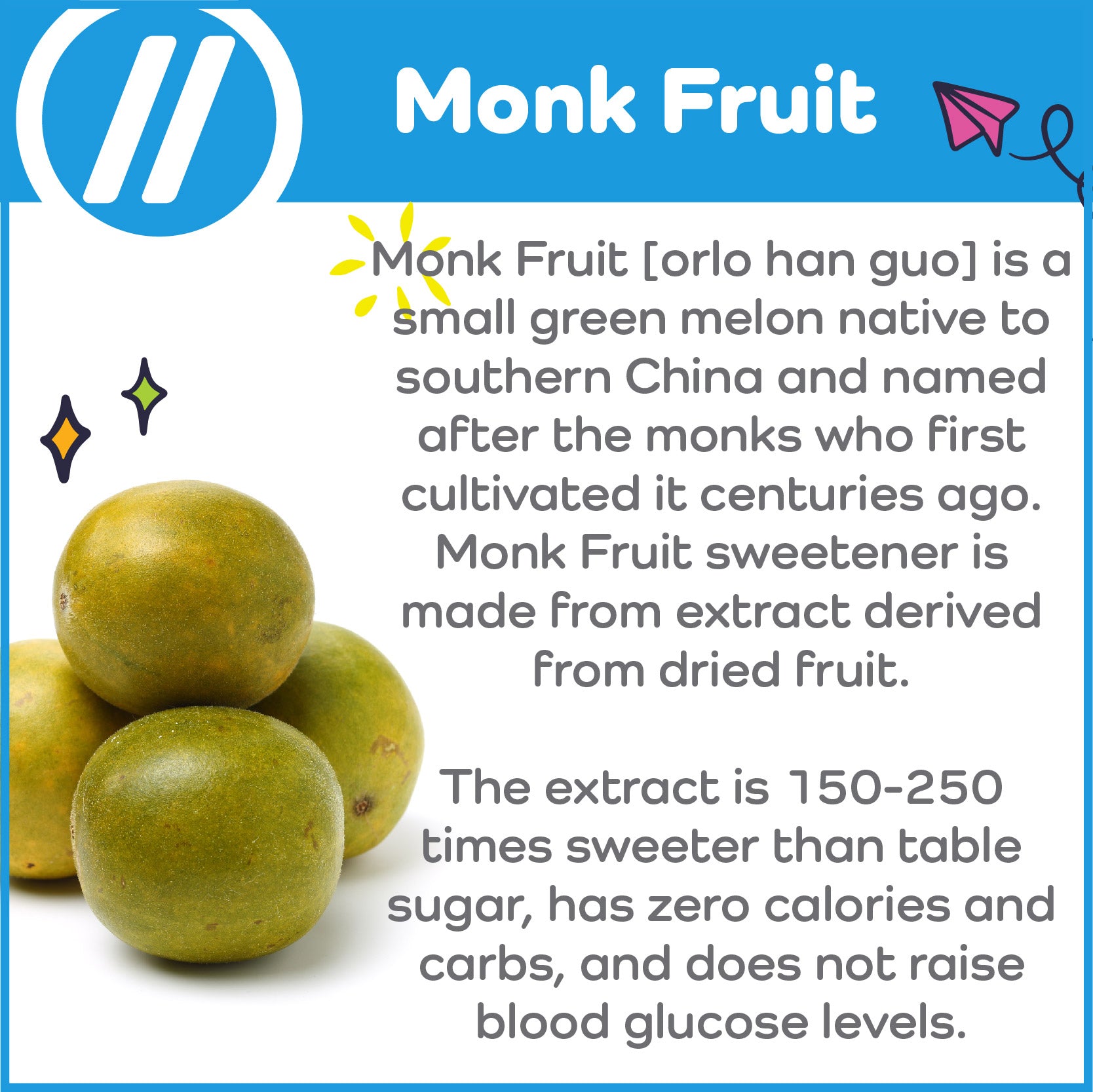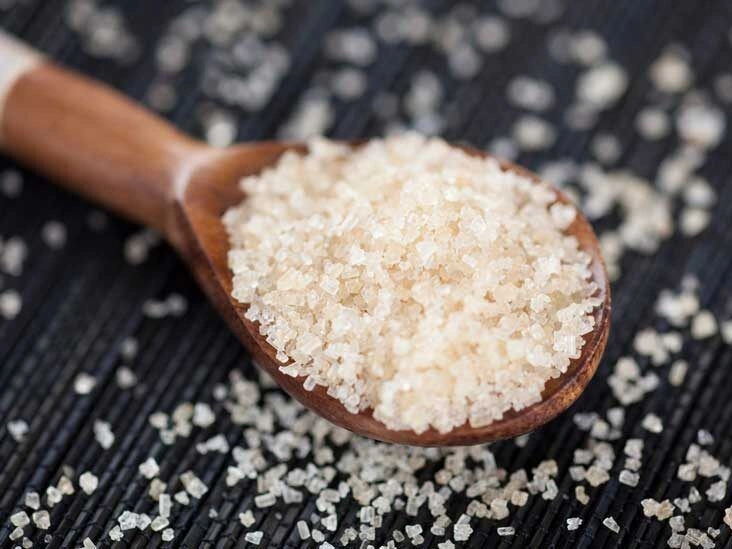Monk fruit sweetener is a natural sugar substitute that contains no calories and is believed to possess antioxidant qualities.

It is derived from the monk fruit, also called luo han guo or “Buddha fruit,” a small round fruit cultivated in Southeast Asia.
Monk fruit extract can be used as:
- a component in foods and beverages
- a taste enhancer
- an element in sweetener mixtures
Monk fruit naturally contains sugars, including fructose and glucose.
However, unlike most fruits, its sweetness does not come from these sugars. Instead, its intense sweet taste comes from distinctive antioxidant compounds known as mogrosides.
This fruit has a long history of use in traditional Chinese medicine and has been utilized as a sweetening agent.
The sweetener is produced by removing the skin and seeds, crushing the fruit to extract the juice, and then drying that juice into a concentrated powder.
During processing, mogrosides are separated from the fresh-pressed juice, so commercial monk fruit sweetener does not contain fructose or glucose.
Monk fruit sweetener and weight control
Monk fruit sweetener is often promoted as an aid for weight loss.
Because it contains zero calories, some people believe it can lower overall calorie intake. Yet, it’s a relatively recent addition to the market and there are no direct studies assessing its impact on body weight.
Still, research on other low-calorie sweeteners suggests that replacing sugar with noncaloric alternatives may support weight management.
Possible health advantages of monk fruit sweetener
Research indicates that mogrosides, the primary constituents of monk fruit, have antioxidant and anti-inflammatory effects.
Because of these properties, they could provide various health benefits.
Antioxidant action
Mogroside extracts display antioxidant and anti-inflammatory activity by neutralizing certain damaging molecules and helping protect DNA from harm.
However, these effects have not yet been confirmed in human trials.
Anticancer potential
Some studies suggest mogrosides may hinder the growth of cancer cells.
A 2022 animal study reported that mogrosides reduced lung cancer growth in mice. Still, human research is needed to clarify this potential.
Antidiabetic potential
As monk fruit sweetener contains no calories or carbohydrates, it does not raise blood sugar levels, making it a potentially suitable choice for people with diabetes.
A 2019 rat study found that mogroside V, the predominant mogroside in monk fruit extract, improved fasting glucose and insulin sensitivity. Human studies are required to better understand these effects.
Because monk fruit extract is frequently blended with other sweeteners, check product labels carefully before buying.
»Learn more:The Best Sugar Substitutes for People with DiabetesIs monk fruit sweetener safe?
Monk fruit sweetener is fairly new in commercial use and there aren’t many studies looking at its long-term effects.
Although no specific adverse effects have been identified so far, it’s wise to use it in moderation.
Consult a healthcare professional for guidance about the safety of monk fruit sweetener given your personal health situation.
The bottom line
Monk fruit sweetener is made from the juice of monk fruit and is approximately 100 to 250 times sweeter than table sugar.
It may help with weight control and contains antioxidant and anti-inflammatory compounds. While mogroside extracts show potential health benefits, further research is needed.
At present, it’s unclear what amount would be necessary to achieve any of these benefits.
Talk with a physician for more information about monk fruit sweetener and other sugar alternatives.

























Leave a Reply
You must be logged in to post a comment.